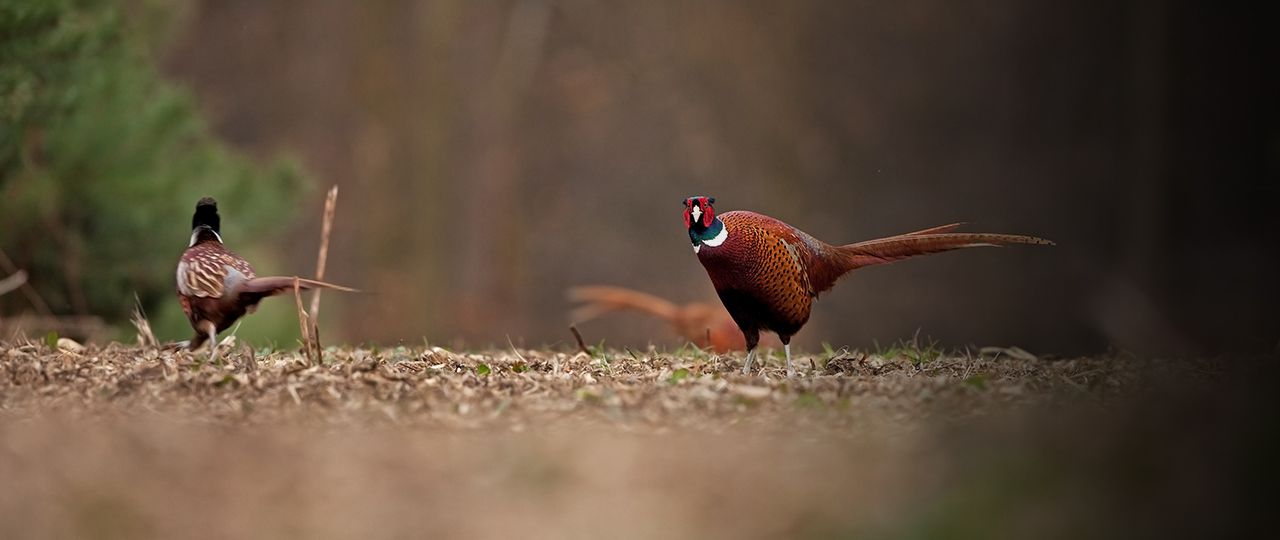
Jason Beedell
Director, Research


Director, Research
Download the full update as a PDF.
Total Income from Farming rises 1.5% in real terms in 2016, mainly due to BPS
Total Income from Farming or TIFF, which is income to people with an entrepreneurial interest in the agricultural industry, typically farmers and partners, rose by 1.5% (in real terms) in 2016 compared with 2015. The rise is due to Basic Payments rising 18% due to Sterling’s devaluation after the EU Referendum vote; the value of what farms produced fell by 3.4% (real), due to falls in both volume and value of cereals and milk, which was offset slightly by input costs also falling (by 4.2% real). Labour, rent and interest remained virtually unchanged. The NFU has said that although profitability has recovered a little, it is far from levels that will sustain a long-term and profitable farming industry. N.B. These figures are first estimates and subject to revision.
Oilseed rape as a resource for farmland insect pollinators
The key finding from this research by Rothamsted Research is that planting genic male sterility (GMS) hybrid varieties provides more food (nectars and sugars) for insects that use OSR nectar than open pollinated varieties. The research did not assess whether the benefits of these varieties are greater than if a farmer did other generic things to support pollinators, such as sowing appropriate seed mixes in non-cropped areas and sympathetic hedgerow management. Therefore advice to farmers interested in supporting pollinators is choose varieties of OSR that produce more food as well as providing other sources of food and habitat on the farm. The view from our agronomy team is that if a grower wants OSR with hybrid characteristics then they might choose a GMS variety if they were bee-minded! Please contact George Badger if you would like our annotated copy of the Recommended Listed that shows which varieties are GMS hydrids.
1.38% contribution to agricultural crisis reserve from 2017 Basic Payments
Each year since 2014 the European Commission take this contribution from subsidy payments to maintain a €500m fund which can be used if a crisis happens, so this is not a new thing; last year, the contribution was 1.35% and, if the fund is not used, it is reimbursed to farmers, which happens in most years.
2017 global cereal production likely to be close to 2016’s record level
Combined with grain in stores at near-record levels, this is pointing to a stable market but probably low prices, according to the UN’s latest cereal supply and demand brief.
Scotland: rents rise by 4-5% on tenanted agricultural land in 2016
This data is based on information from around 10,000 holdings collected by the Scottish Government through the June Agricultural Census. The average rent paid rose by 4% for LFA holdings and 5% for non-LFA holdings, based on a calculation that is weighted to reflect actual areas of different farm types in LFAs and non-LFAs. The data also highlights the very significant range of rents being paid; for example, rents for cereal farms ranged from £75 to over £200 per hectare, and this excludes the top and bottom 10% of rents. The Government also notes that, in recent years, there has been a reduction in the area of land rented under cheaper, long-term rental arrangements, and an increase in shorter-term limited duration tenancies.
Energy network under pressure from electric car charging and solar PV
The Government must plan for ‘smart’ charging points for electric cars to ensure that increased demand for electricity to charge the cars – numbers of cars are expected to rise from 100,000 now to around 4.6m in 2025 as their cost falls – does not cause power cuts. ‘Smart’ car chargers could turn electric vehicle batteries into a useful resource, pumping electricity into the grid at peak times and drawing it to charge cars when power is plentiful. This warning comes from a Green Alliance report, which also says that up to 20% of local power networks are close to capacity, which means the government must either stop further solar PV installations or upgrade the energy grid; longer-term, using batteries and smarter use of household appliances could level out energy demand.
High deer numbers can affect woodland bird habitats and numbers
A study by Nottingham University researchers has found that woodlands with high deer populations (over 10/km2) had almost 70% less shrub and under-storey cover, which is important habitat for woodland birds, mammals and insects, than woodland with low deer numbers (less than 1/km2). The researchers said that deer numbers were at high levels nationally and would need to be lowered to help woodland birds to recover.
Government cancels rise in probate fees
The proposed rises, which would have increased the fee payable by an executor to be able to deal with a deceased person’s affairs and will, have been cancelled due to lack of parliamentary time. It is not yet clear whether the proposals will be revived after the general election.
Government postpones Making Tax Digital – probably by a year
The Government has removed the proposals, which would have required all businesses and property landlords with income over £85,000 to keep digital records and send HMRC quarterly updates, from the Finance Act 2017; this means that the changes are likely to be delayed for at least a year, so now possibly starting in April 2019. Please contact Alex Heffer for further details.
Scotland: licencing regime for game bird shoots a possibility
Environment Secretary Roseanna Cunningham has said that she ‘can see the attraction’ of a new licencing regime for game bird shoots in order to reduce the number of birds of prey that are killed by shoots. Scottish Land and Estates has said that the new regime, which would need primary legislation, is unnecessary as persecution of birds of prey has been falling and that it would also damage the partnership working between the government and shoots.
Ofcom forces BT to allow rivals access to telecoms network
As we previous reported, BT is being forced by Ofcom to give its competitors, like Virgin and Vodafone, access to telegraph poles, ducts and tunnels to be able to insert their own fibre cables into the existing network. The change is designed to increase competition and is partially a result of BT charging its rivals high fees for access to the network and being slow to grant access. BT could appeal.